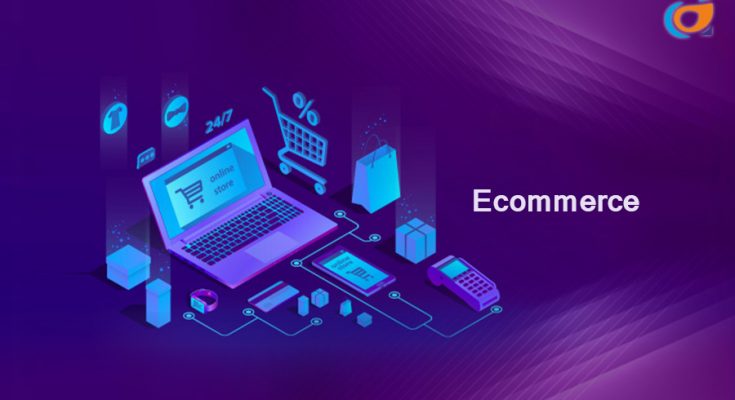E-commerce has turned out as the single biggest growth driver in the worldwide marketplace. In simple terms, e-commerce website development enables a business to sell products and services online. Traditional, business is to purchase on-premise, whereas e-commerce website development requires extensive IT setup and in-house management with specialized development teams. These solutions were generally costly, not scalable, challenging to work with, and time-consuming to customize and integrate with other systems.
Online Business
Ecommerce website provides the customer with the front end component of an online business. Like all the other businesses, online businesses need additional software to manage back end functions. Such as accounting, order management, inventory management, and customer service. Piecing together different software solutions to create a complete e-commerce business platform is complicated, requires frequent maintenance and rarely functions efficiently.
Fortunately, a new breed of business software integrates all the needed commerce and business functionality into a single e-commerce platform via a software-as-a-service (SaaS) model. With an infrastructure that unifies business applications. And the data that feeds them, it is possible to create relevant, engaging and personalized online experiences.
The Retail sector is investing in these platforms because e-commerce website is arguably the most important technology for online retailers. They are the foundation of an e-retail business. For shoppers, the e-commerce website is the face of a retailer. And for merchants, e-commerce platforms need to be easy to work with, modify and customize. And they need to function—without fail.
What is an e-Commerce Platform?
In simple terms, the e-commerce platform is the software that allows a business to perform complex functions. Both in the front and back end of its operations. This includes inventory management, warehouse fulfillment, CRM, customizable web design, integrated M-commerce (mobile commerce) functionalities and many more functions that power an online business.
Fundamentally, e-commerce platforms are the backbone of any online retail enterprise. It allows the front-end and back-end to work in tandem and efficiently. E-commerce platforms are the girders of the e-commerce building, providing a rigid structure on which a B2B or B2C e-commerce enterprise is supported.
Data is the building blocks of platform products, pricing, inventory, customer-specific contracts, and promotions. All of this data bounces off the product and customized code and gives you a sense of how the system responds in real life.
Listen to your customers and collaborate with them. Give them a voice in the vision and design, rather than proceeding on the basis of what you think they need.
Develop flexibility
Develop flexibility. Use modern techniques such as microservices, a DevOps approach to automation, and develop interfaces that can be used by any system including the e-commerce platform.
Strive for results, not perfection. Make compromises to reduce complexity – if you need to feed price data to e-commerce to make it work, then do that instead of insisting it calls a price service API (and fits a perfect architectural solution).
Let the chosen platform become an opportunity to hone and sharpen your business processes. If you try to bend the system to the way you work, rather than optimizing the way you work to fit your chosen platform, you’ll create a larger, more costly and less flexible result.
E-Commerce is also known as electronic commerce. Because it is selling and buying of products or services on the internet with the help of electronic devices like computers, mobile phones, laptops and tablets. These include the use of the World Wide Web for the financial transaction.
Growth in the e-commerce Industry
Growth in the e-commerce industry is triggered by increasing smartphones and internet penetration. A large population of youngsters are more prone to use smartphones. Subsequently, it brings significant growth opportunities for retailers from across the world.
With the rising smartphone penetration, the launch of 4G networks and increasing consumer wealth, the Indian e-commerce market is expected to grow. E-commerce is the reason for the change in customers behavior towards shopping. Online shopping is rising with steep curve with each passing year.
In the emerging global economy, e-commerce and e-business have become an essential part of the economic system. It will be a strong catalyst for economic development in coming future.
Aimbeat Softech established in 2011 has designed more than 700 e-commerce websites. We have created unique websites, specialized in e-commerce. We are one of the renowned website Development Company in Mumbai.




